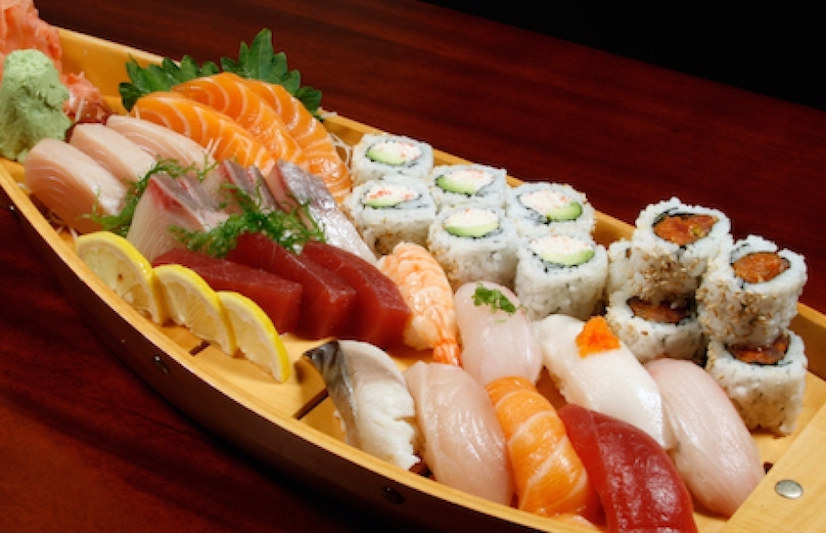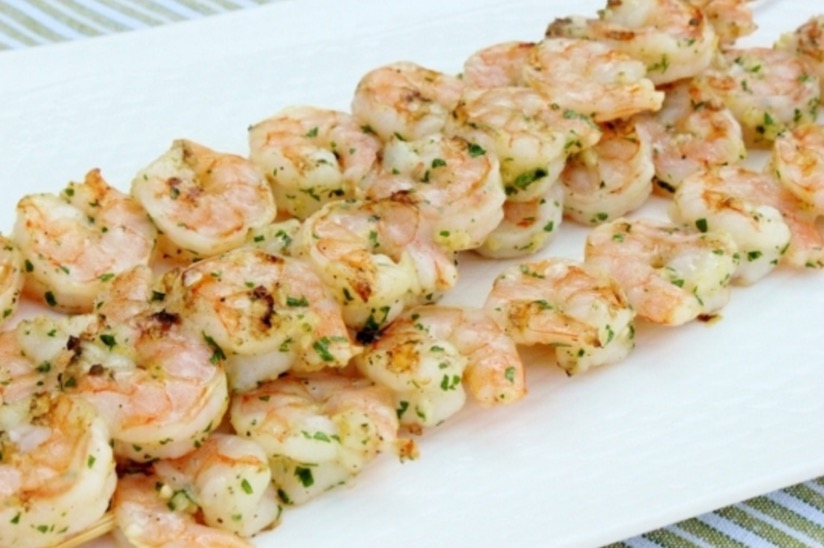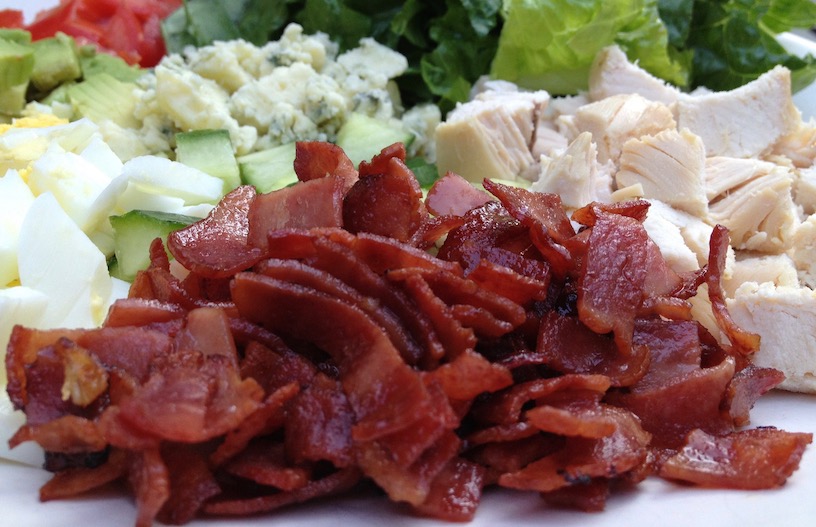As a health-conscious foodie, I always make an effort to get the most nutritional bang for my buck, especially when dining away from home. Sushi has always fit the bill perfectly! Believe it or not, when the right combination of ingredients is chosen, sushi can actually be one of the most powerful natural sources of disease-fighting vitamins, minerals, and antioxidants.
So, if you’re a huge fan of sushi like me, or even if you’re just looking to try something new, here are seven delicious and healthy ways to enjoy your sushi experience in a healthy way.
Choose the Right Fish
To minimize your exposure to mercury and other environmental pollutants choose sushi varieties made with low-mercury seafood including salmon, crab, shrimp, squid, and tuna. Like other types of seafood, these are incredibility nutritious, as they are low in calories and rich in high-quality protein. Many types of low-mercury seafood also house large quantities of healthy fats, vitamins and minerals (vitamin B12, vitamin D, and selenium).
Related Article: Mercury in Seafood: What to Eat and What Not to Eat
Pack in the Fresh Veggies
If you really want to boost the nutritional value of sushi, include a variety of fresh vegetables in a seaweed (nori) wrapper for a tasty maki roll. Some great choices include mushroom, cucumber, bell pepper, asparagus, and daikon (white radish). Collectively, the seaweed and other veggies can give you a whopping dose of fiber, micronutrients and antioxidants like B-vitamins, beta-carotene, vitamin C, vitamin K, and iron.
Related Article: Eight Super-Simple Ways to Get More Veggies Into Your Diet
Add a Little Avocado
Many sushi rolls are traditionally made with avocado and this savory fruit just happens to be among the most wholesome add-ins. Avocado is a potent source of fiber and healthy monounsaturated fat, which is known to promote healthy cholesterol levels and protect against heart disease. In addition to its rich content of good fat, avocado is also a great source of folate, vitamin B6, vitamin C, potassium, and magnesium.
Related Article: High Cholesterol: What You Need to Know
Just Say YES to the Rice
Many carb-counters tend to shy away from eating the vinegary short grain white rice that’s traditionally used for nigiri sushi and sushi rolls. Bad idea! This sticky rice is actually one of the richest natural sources of resistant starch. When consumed regularly, resistant starch can greatly boost the body’s fat burning potential and lower the risk of numerous chronic diseases like diabetes, heart disease, and gastrointestinal disorders.
Experiment with Fishless Varieties
Whether you’re trying to reduce your mercury exposure or even boost your intake of essential amino acids, there are many nutrient-dense complimentary protein options for you to incorporate into sushi. These include high-quality soy foods like tempeh and tofu, each of which contains about 20 grams of protein per serving. Soy foods are also valuable sources of fiber and vital nutrients like calcium, magnesium, and iron.
Don’t Forget the Wasabi
Wasabi should never be forgotten when consuming sushi, as it’s incredibly nutritious. The savory, yet pungent taste of this root vegetable is due to its high content of an all-natural, plant-based compound called allyl isothiocyanate. Allyl isothiocyanate has been shown to hinder the development of cancer by reducing cancerous tumor growth. In addition to its cancer-fighting effects, wasabi is also a good source of protein and fiber.
Sip on Some Sake
If you occasionally drink alcohol, why not enjoy a cup of hot (or cold) sake with your sushi. Sake is a Japanese version of white wine that’s made from fermented rice. With an alcoholic content ranging from 15-17%, sake contains no artificial additives, enhancers or sulfites. Remarkably, moderate sake consumption can improve sleep quality and may also protect against heart disease, cancer, and other chronic conditions.
Related Article: Simple Ways to Enjoy Alcohol Without Gaining Weight
For a fun and unique dining experience sushi is always a great choice. Whether you prefer maki rolls, nigiri or even sashimi (without rice), high-quality sushi is generally low in calories and rich in beneficial nutrients making it a top shelf food source for weight loss, long-term weight management, and overall good health. Following these seven tips will help you unlock the full taste, nutritional potential and health benefits of sushi for maximum enjoyment and minimum guilt.







